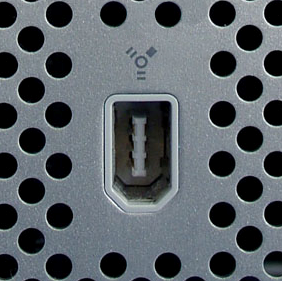Any Thinkpad user here using their Firewire port? What would you use it for? I read that we can make ad-hoc connection between two computers.
You can do ethernet over firewire. It’s only really useful if you need to transfer data from a computer that lacks gigabit ethernet though.
While I don’t have a Thinkpad, I use Firewire to transfer miniDV recordings off an old camcorder
FireWire (or IEEE1394) was commonly used to connect tape camcorders to transfer video due to it being faster than USB at the time, there was also a short period where iPods came with a FireWire cable only (I think). The power output is also a bit higher than what USB-A is capable of (7 vs. 5 W).
Edit: I’m dumb. First and second generation iPods literally had FireWire ports, but they initially only provided FireWire to FireWire cables (6-pin) in the box.
I don’t think thinkpads ever came with the 6 or 8 pin flavors of firewire, only the 4 pin “i link” style plug that doesn’t do power.
Which essentially limits them to only transferring data to devices with batteries like camcorders.
No idea, I don’t have any ThinkPads with IEEE1394. I’m pretty sure the only laptops to come with 6 pin FireWire were Macs, with the 8 pin only appearing on PowerBooks, I believe.
But they dropped FireWire with the first “unibody” MacBook.
Firewire did not have much staying power and quickly became obsolete except in a few isolated niches. It was the “Beta” compared to USB’s “VHS” – clearly better, but not enough better for it to achieve widespread adoption, which starved it out of the market and ultimately killed it. There’s really nothing useful that can be done with it that can’t be done better with USB or even wireless nowadays.



